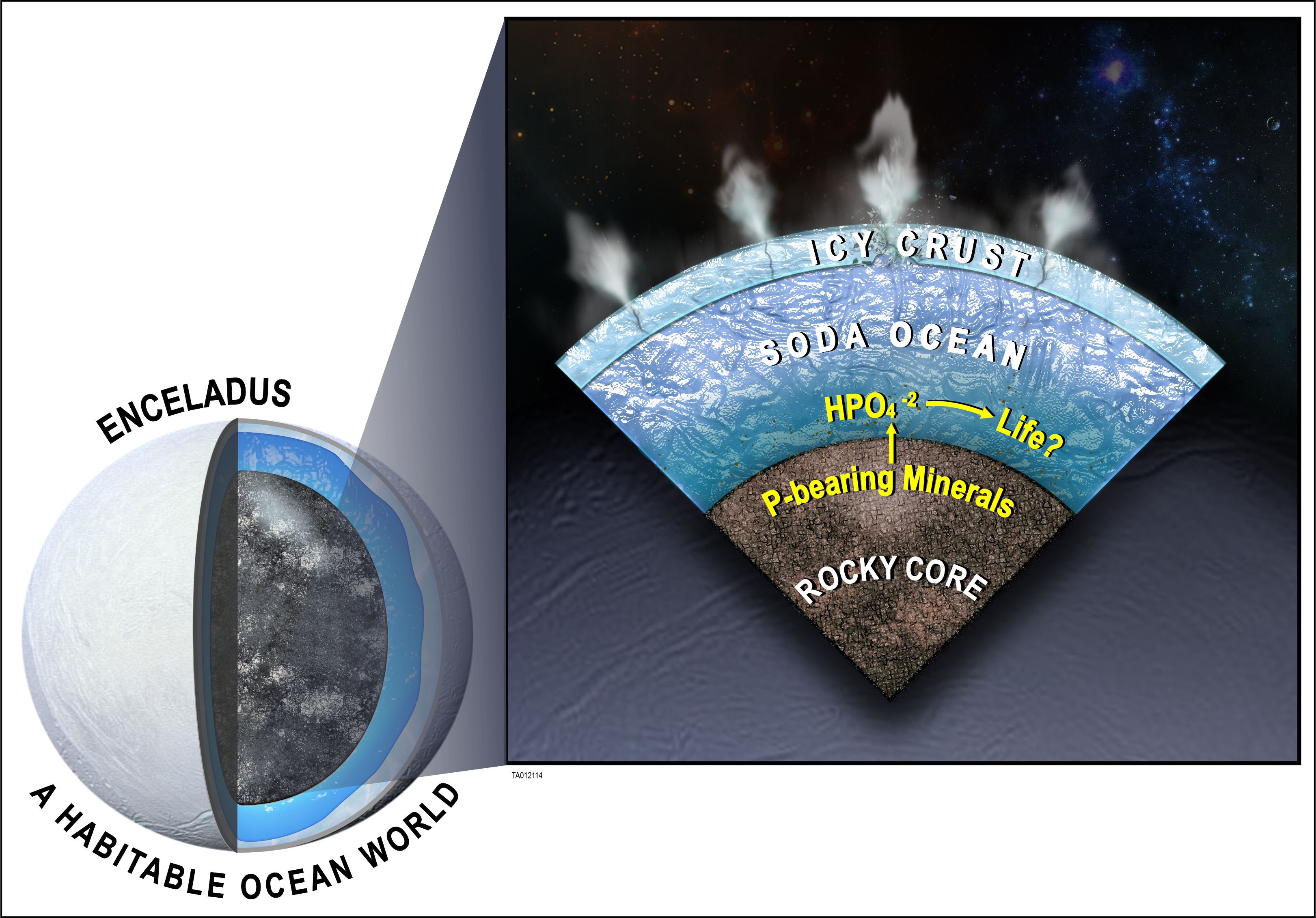Enceladus has quickly gone from being just another small moon of Saturn to prime territory to answer the great question: are we alone in the universe? No one thinks Enceladus could be home to sentient creatures, but if it hosts microbes, it would be powerful evidence that life is abundant and that given a chance it will “find a way”.
It takes a wide variety of elements to keep a human alive, but only five of these are required by every living thing on Earth: hydrogen, oxygen, carbon, nitrogen and phosphorus. The fact Enceladus has an ocean of liquid water – some of which is escaping to space – is what first drew astrobiologists’ attention to the little moon, so we know the first two elements in the list are abundant.
Ammonia and methane ices in the moon’s plumes confirm the presence of nitrogen and carbon in Enceladus’ internal ocean, and molecular hydrogen indicates the presence of biologically available energy. However, doubts have been raised about phosphorus. Although other paths to life may exist, without phosphorus, the prospects for self-replicating organisms would be considerably slimmer. Fortunately however, a paper in Proceedings of the National Academy of Sciences indicates phosphorus deficiency is unlikely to be a problem.
“In the years since NASA’s Cassini spacecraft visited the Saturn system we have been repeatedly blown away by the discoveries made possible by the collected data,” said Dr Christopher Glein of the Southwest Research Institute in a statement.
Although we’ve known about Europa’s internal ocean much longer than that of Enceladus, we know more about the composition of Saturn’s moon than Jupiter’s. That’s because we’ve had a chance to study the plume released by Enceladus’ geysers. “What we have learned is that the plume contains almost all the basis requirements of life as we know it,” Glein said. Phosphorus is the exception, with no direct evidence for its presence.
Future missions with the sensitivity to test for the presence of phosphorus are a fair way off, so Glein and co-authors sought a less direct path to establish its presence.
Enceladus is not liquid all the way through. We know from its density that it contains a solid core, which almost certainly contains all the abundant elements in the universe, phosphorus included. The paper models the interactions between the core and the ocean above to determine whether phosphate minerals in the rocks would be released into the ocean. They found the temperature, pressure, and acidity were right to make phosphates particularly soluble, predominantly in the form of orthophosphate (PO43−).

Phosphorus from Enceladus’ core should dissolve in its ocean to support life. Image Credit: Southwest Research Institute
“The underlying geochemistry has an elegant simplicity that makes the presence of dissolved phosphorus inevitable, reaching levels close to or even higher than those in modern Earth seawater,” Glein said.
This doesn’t necessarily mean Enceladus is inhabited, but it’s probably habitable; we could probably seed it if we wanted to. An absence, therefore, indicates it’s not so easy for life to appear, and its presence isn’t inevitable on suitable worlds.
Glein is unambiguous: “We need to get back to Enceladus to see if a habitable ocean is actually inhabited.”
The Paper is published in Proceedings of the National Academy of Sciences.
Source Link: Saturn’s Moon Enceladus Now Has All The Elements For Life